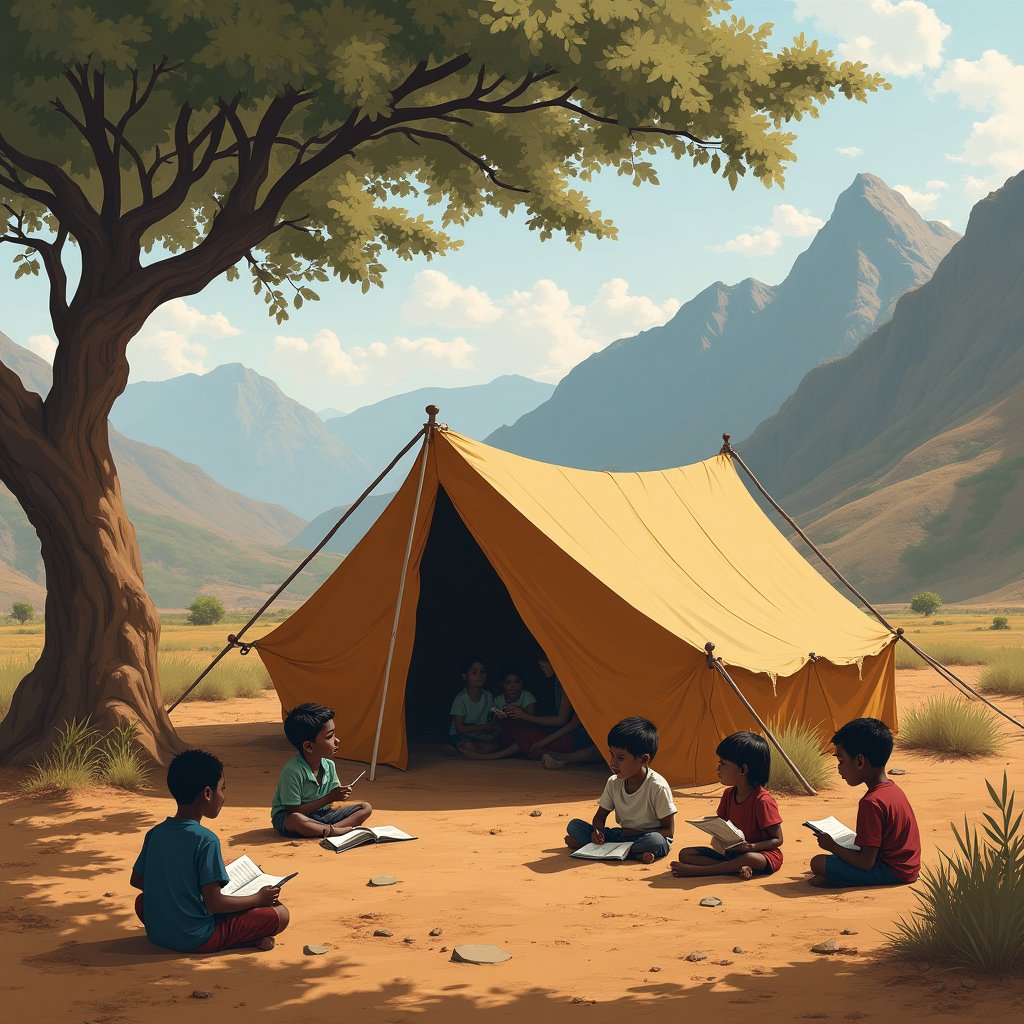The plight of education in Pakistan's Pashtun regions is a heart-wrenching tale painted with strokes of ambition and adversity. Inspired by the insights from the DW Documentary, we journey into the life of young dreamers like Zainab and Jalal, whose aspirations echo through the rocky terrains and rudimentary classrooms of their homeland. Despite a system rife with shortcomings, these galvanized spirits nurture grand ambitions—like becoming doctors—to better their lives and communities.
Zainab and Jalal's ambitions might seem typical elsewhere, but in their context, they are revolutionary. The educational infrastructure in Pakistan's Pashtun regions leaves much to be desired, and these children must navigate a maze of cultural and governmental obstacles. Join us as we delve deeper into the realities faced by these young minds and the unyielding hope that guides them against all odds.
The Dream Deferred
Every dreamer deserves a chance, but does education in Pakistan's Pashtun region offer one? The story unfolds in a mountainous area of Western Pakistan where the oldest son of Mohammad Fatah, Jalal, dares to dream of becoming a doctor. Frail tent schools with no running water—some existing for over 30 years—are the only semblance of formal education available. These tent schools are a symbol of resilience and defiance against an indifferent system.
| Challenges at Jalal's School | Impact on Students |
|---|---|
| Lack of a Proper Building | Discomfort, lack of focus |
| Long and Difficult Commute | Physical exhaustion |
| Limited Educational Resources | Language barriers, limited learning |
Walking the Rocky Path of Education
For Jalal and his brethren, the path to school is not just metaphorically rocky—it literally involves a two-and-a-half-hour trek over difficult terrain. As the sun scorches in the summer and snow bites in the winter, these children press on, sharing poems and dreams along their way, their laughter and resilience the only armor against the weariness of the climb. Yet, hope is as exhaustive as the walk itself.
Upon reaching school, the learning environment is everything but optimal. Packed tightly under a sagging tent, they study from books in national languages they barely speak while attending classes covering multiple grades simultaneously. It is a noise-heavy, feverishly busy atmosphere that drowns out the teacher's voice as much as it tests their patience.
Social Margins and Political Voids
Pashtuns are the second-largest ethnic group in Pakistan, yet they often feel like second-class citizens. A history of political marginalization rooted in colonial border demarcations continues to haunt them. Their remote villages are overlooked by a government whose promises of change never seem to span the distance from the corridors of power to the highland communities.
Critics argue that a deficit in basic amenities, and education in particular, is not a mere oversight but a continuation of historical neglect. Government officials, during elections, make grand promises that momentarily shine like mirages—only to dissipate after the ballots are tallied. The echo of 'broken promises' knits a quilt of mistrust enveloping the Pashtun society.
Fruitless Political Promises
Zainab, another torchbearer of dreams from a Pashtun village, is further proof of this narrative. Fleeing the turmoil of Afghanistan with her family, she now helps support them by selling boiled potatoes. Her routine involves working several hours a day while attending a rare charity-run community school, which she wishes was closer to home.
Despite the odds, free meals and modest financial support from donor-financed schools try to keep children from becoming laborers rather than learners. Yet the country's educational spending, barely scraping 2 percent of its GDP, makes one wonder how many children like Zainab and Jalal still stand a chance.
Madrasas: The Double-Edged Sword
Madrasas, religious schools abound as another form of educational institution—ones where spiritual commitment sometimes overshadows academic learning. With over 40,000 operated primarily for boys, Madrasas offer religious instruction, shelter, and meals free of charge but ironically little secular education. Some parents, unable to afford conventional schooling, choose Madrasas, hoping for a future led by piety and divine favor.
However, this spiritual dependency captures criticism due to its potential to foster religious extremism. Indeed, leaders from such Madrasas have fueled militancy in the region, raising yet another obstacle to the education of these young, impressionable minds.
Revolution in Education
Amid all struggles, rays of hope break through the overcast sky of educational despair. In Khanozai, a village cultivated by the legendary elder, Allama Abdul Ali Akhundzada Achwuandsada, education finds fertile ground. Here, literacy rates soar, especially among girls—a testament to the village's cohesive social fabric that tirelessly upholds educational values.
While Khanozai presents an inspiring case study, it remains unique, and replicating its success in Jalal's village and beyond calls for strong advocacy and community involvement. It demonstrates that unity, pressure, and relentless insistence on education can yield dividends even in challenging socio-political landscapes.
Reflections and Questions
The tale of Zainab and Jalal rides on currents of resilience, emphasizing the transformative power of education as both a liberator and a dream enabler. In an arena where governmental indifference looms like an insurmountable shadow, their stories shine with stubborn determination and unyielding hopes.
How can a system so lacking find immediate redress? What roles should society, government, and international communities play in bridging these educational chasms? What future awaits these bright-eyed dreamers—is it one of fulfilled hopes or shattered ambitions? We invite you to ponder these questions and join the debate. Share your thoughts and become a part of our iNthacity: the "Shining City on the Web" community, where dreams find a voice and communities find solutions.
Wait! There's more...check out our fascinating short story that continues the journey: A Song in the Dust
Disclaimer: This article may contain affiliate links. If you click on these links and make a purchase, we may receive a commission at no additional cost to you. Our recommendations and reviews are always independent and objective, aiming to provide you with the best information and resources.
Get Exclusive Stories, Photos, Art & Offers - Subscribe Today!


























Post Comment
You must be logged in to post a comment.